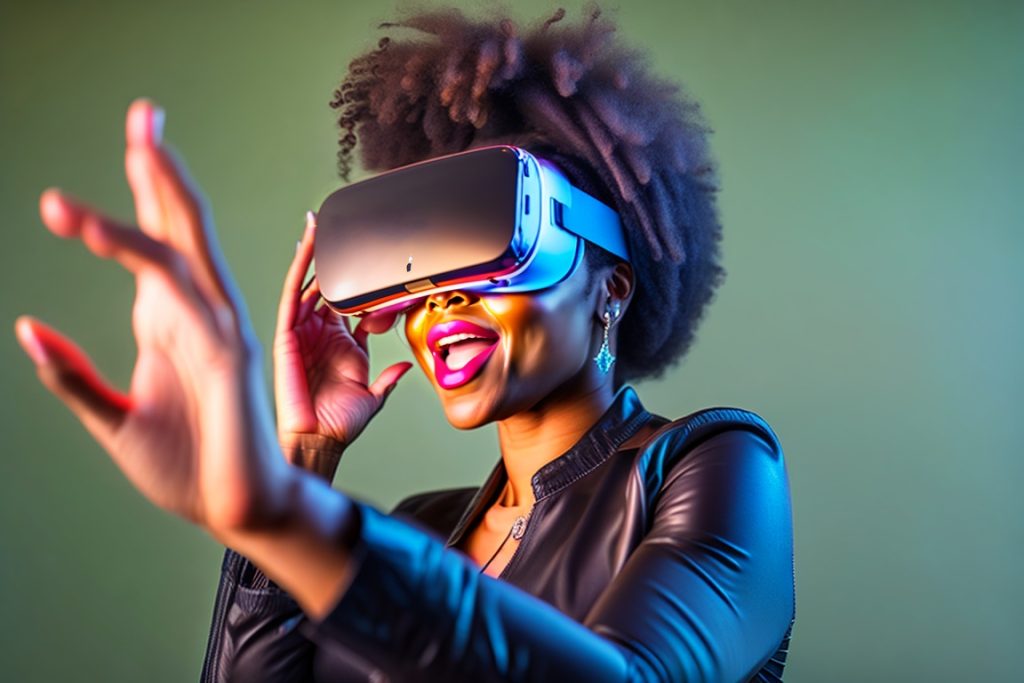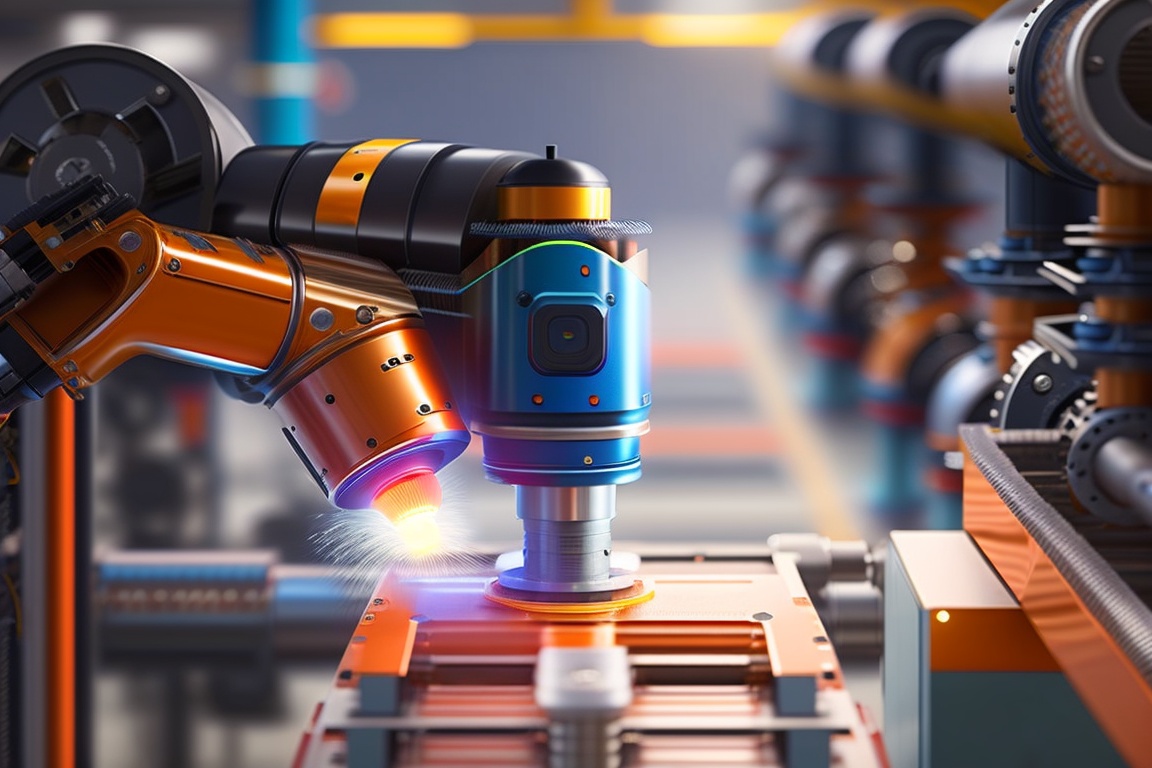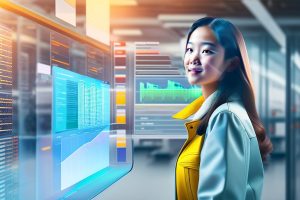Artificial Intelligence (AI) has been transforming various industries, making processes more efficient and improving decision-making — thus AI replacing jobs is not in doubt. However, this technological advancement has also led to concerns about its impact on the job market. As AI continues to evolve, certain roles traditionally performed by humans are becoming automated, resulting in job displacement. In this article, we will explore the ways in which AI is replacing jobs and delve into the emergence of new job opportunities that arise as a consequence.
The Rise of AI and Job Displacement
Understanding AI’s Role in Job Replacement
AI, a powerful technology that simulates human intelligence, has seen exponential growth in recent years. Its ability to analyze vast amounts of data, recognize patterns, and make predictions with unparalleled accuracy has proven valuable to businesses across various sectors. However, this rapid advancement has also raised concerns about its impact on the workforce.
AI Replacing Jobs That Are Repetitive and Manual
One of the significant ways AI replaces jobs is by automating repetitive and manual tasks. Industries such as manufacturing, agriculture, and logistics have seen a shift towards increased automation, resulting in reduced human intervention. Robots and AI-powered machines can now perform tasks with precision and consistency, often surpassing human capabilities.
AI Replacing Jobs in Customer Service
Another area where AI has significantly affected job roles is in customer service. Chatbots and virtual assistants have become commonplace, handling customer inquiries and providing support without human intervention. While this enhances efficiency and reduces response times, it has led to a decline in the number of customer service representatives required.
New Job Opportunities Created by AI
While AI may displace some jobs, it also creates new opportunities in various sectors. As technology continues to evolve, the demand for skilled professionals to develop, implement, and maintain AI systems is growing. Let’s explore some of the new job roles emerging due to the rise of AI.
AI Specialist
With AI playing a crucial role in transforming businesses, the need for experts in this field has surged. AI specialists are professionals who develop and implement AI algorithms and systems. They possess a deep understanding of machine learning, natural language processing, and data analysis. Companies across industries require AI specialists to leverage the full potential of AI for their specific needs.
Data Analysts
As AI relies heavily on data, the demand for data analysts has grown significantly. Data analysts collect, process, and interpret vast amounts of data to identify trends and patterns, enabling businesses to make informed decisions. Their role is essential in training AI models and ensuring accurate and reliable outputs.
AI Ethics Consultant
As AI becomes increasingly pervasive, ethical concerns related to its use have emerged. AI ethics consultants help organizations navigate ethical challenges associated with AI implementation. They develop guidelines and policies to ensure AI systems are used responsibly, without bias, and with proper regard for privacy and security.
Virtual Reality (VR) and Augmented Reality (AR) Developers

AI has also paved the way for immersive technologies like VR and AR. VR and AR developers create interactive experiences that merge the digital world with reality. These technologies find applications in various fields, including gaming, education, healthcare, and training. As the demand for VR and AR applications grows, so does the need for skilled developers.
Human-AI Integration Specialists
Despite AI’s capabilities, there remains a need for human oversight and collaboration. Human-AI integration specialists focus on creating seamless interactions between humans and AI systems. They design interfaces that are user-friendly and intuitive, making it easier for individuals to work alongside AI.
The Impact of AI on Creative Industries
The influence of AI is not limited to automation and data analysis. It is also making waves in creative industries such as music, art, and content creation. AI-generated art and music are gaining popularity, challenging traditional creative roles. AI algorithms can compose music, create visual art, and even write articles, blurring the lines between human and machine creativity.
While AI-generated content provides new opportunities and innovations, it also raises questions about the authenticity of creative works. Many argue that true creativity comes from human emotions and experiences, and AI-generated content lacks the depth and originality of human-created art. Despite this debate, AI’s presence in creative industries cannot be ignored, and new job roles are emerging to harness the potential of AI in creative endeavors.
AI-Enhanced Creativity Consultants
AI-Enhanced Creativity Consultants are professionals who combine their artistic expertise with AI tools to create unique and innovative works. They leverage AI algorithms to augment their creative process, exploring new possibilities that were previously unimaginable. These consultants push the boundaries of creativity, offering fresh perspectives in art, music, and content creation.
AI-Driven Marketing Strategists
In the world of digital marketing, AI plays a significant role in analyzing consumer behavior, predicting trends, and optimizing ad campaigns. AI-driven marketing strategists leverage data and AI tools to create effective marketing strategies that target specific audiences with personalized content. Their insights lead to improved conversion rates and higher ROI for businesses.
AI-Curated Content Creators
AI-Curated Content Creators are professionals who utilize AI algorithms to curate and generate content for various platforms. These creators work with AI-powered content recommendation systems to deliver personalized content to users based on their preferences and interests. This approach enhances user engagement and drives traffic to websites, making it a valuable role in digital content distribution.
Embracing AI in Healthcare
The healthcare industry is witnessing a revolution with the integration of AI. AI-powered diagnostic tools, medical imaging analysis, and personalized treatment plans are transforming patient care. While AI enhances medical practices, it also influences job roles in the healthcare sector.
AI-Assisted Diagnosticians
AI-Assisted Diagnosticians work alongside healthcare professionals to analyze medical data and assist in diagnosing various conditions. These professionals use AI algorithms to process vast amounts of patient data, helping to identify patterns and potential diagnoses accurately and efficiently. The combination of AI and human expertise results in improved diagnostic accuracy and faster treatment decisions.
Medical AI Trainers
As AI systems become more prevalent in healthcare, the need for professionals who can train and fine-tune these systems is growing. Medical AI Trainers are responsible for feeding data into AI algorithms, ensuring they are trained on accurate and diverse datasets. They continuously monitor and refine AI models to maintain their accuracy and efficacy in real-world scenarios.
Navigating the Changing Landscape
As AI continues to replace some jobs and create new opportunities, individuals and organizations must adapt to the changing landscape. To remain competitive and relevant in the job market, embracing AI and upskilling in relevant areas is essential. Employers should also focus on workforce reskilling to equip employees with the skills required to work alongside AI and harness its potential effectively.
Final Thoughts
AI’s impact on the job market is a reality that cannot be ignored. While it does replace certain roles, it also creates new job opportunities and revolutionizes industries in unprecedented ways. Understanding the evolving job landscape and investing in the right skills will be crucial for individuals and businesses alike.
As AI technology continues to advance, it is essential to approach its integration with a balanced perspective. AI should be viewed as a tool that complements human capabilities rather than a complete replacement for human workers. By embracing AI responsibly and ethically, we can navigate the changing job market and create a future where humans and AI work together harmoniously.




